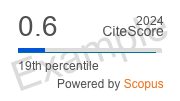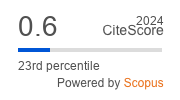Retrospective analysis of non-pharmacological factors associated with ineffective control of arterial hypertension in a clinical sample
https://doi.org/10.29001/2073-8552-2025-2414
Abstract
Introduction. Arterial hypertension (HT) is the most common risk factor of cardiovascular diseases and leads to increased premature mortality. About half of HT patients do not reach the target values of blood pressure (BP).
Aim: To assess the frequency of failure to achieve the target BP level and to identify non-pharmacological factors associated with inefficient BP control in a clinical sample of patients with hypertension.
Material and Methods. A sequential clinical sample of patients (n = 105, 19–84 years old) with an established diagnosis of HT receiving antihypertensive therapy (AHT), was examined. Clinical data were analyzed in groups with efficient (ECHT, n = 29) and inefficient control of hypertension (ICHT, n = 76) by the time of admission to the hospital.
Results. In the entire sample, the proportion of ICHT (72%) was higher compared to ECHT (28%). The groups did not differ in age, anthropometry, menopausal status in women, and duration of HT, but with an increase in the degree of hypertension, the proportion of patients with NCAH increased. There were more women in ECHT group, and there were equal proportions of men and women in ICHT group. In the ICHT group, we observed higher values of HDLC, more frequent chronic heart failure (CHF) and single atherosclerotic plaques (AP) of carotid and other peripheral arteries; in the ECHT group, the average levels of plasma glucose, glycated hemoglobin, the proportion of smokers were higher, and type 2 diabetes and multiple AP were more common. The AHT (doses, regimen, combinations) was more adequate in the ECHT group. About half of the patients received combination therapy.
Conclusion. In the clinical sample, one third of HT patients receiving AHT, had blood pressure controlled to target at hospital admission. Inefficient blood pressure control was associated with male gender, a higher level of HDLC, the high degree of HT, single AP and CHF. In the efficient control group, smoking, comorbidity with type 2 diabetes, multiple AP, higher glucose levels and HbA1c were more often noted.
Keywords
About the Authors
B. A. AsketovaРоссия
Bermet A. Asketova, Resident Doctor (Cardiology)
175/1, B. Bogatkova str., Novosibirsk, 630089
E. V. Mazdorova
Россия
Ekaterina V. Mazdorova, Research Scientist, Laboratory of Ethiopathogenesis and Clinics of Internal Diseases
175/1, B. Bogatkova str., Novosibirsk, 630089
S. G. Shakhmatov
Россия
Sergej G. Shakhmatov, Senior Research Scientist, Laboratory of Ethiopathogenesis and Clinics of Internal Diseases
175/1, B. Bogatkova str., Novosibirsk, 630089
Yu. V. Shchepina
Россия
Yulia V. Shchepina, Research Scientist, Laboratory of Ethiopathogenesis and Clinics of Internal Diseases
175/1, B. Bogatkova str., Novosibirsk, 630089
A. N. Ryabikov
Россия
Andrey N. Ryabikov, Chief Research Scientist, Laboratory of Ethiopathogenesis and Clinics of Internal Diseases
175/1, B. Bogatkova str., Novosibirsk, 630089
References
1. Shalnova S.A., Konradi A.О., Balanova Yu.A., Deev A.D., Imaeva A.E., Muromtseva G.A. et al. What factors do influence arterial hypertension control in Russia. Cardiovascular Therapy and Prevention. 2018;17(4):53–60. (In Russ.). https://doi.org/10.15829/1728-8800-2018-4-53-60
2. NCD Risk Factor Collaboration (NCD-RisC). Worldwide trends in hypertension prevalence and progress in treatment and control from 1990 to 2019: a pooled analysis of 1201 population-representative studies with 104 million participants. The Lancet. 2021;398:957–980. https://doi.org/10.1016/s0140-6736(21)01330-1
3. Malyutina S.K., Mazdorova E.V., Shapkina M.Y., Avdeeva E.M., Maslacov N.A., Simonova G.I. et al. The profile of drug treatment in subjects aged over 50 years with hypertension in an urban Russian population. Kardiologiia. 2020;60(3):21–29. (In Russ.). https://doi.org/10.18087/cardio.2020.3.n948
4. Balanova Y.A., Shalnova S.A., Imaeva A.E., Kapustina A.V., Muromtseva G.A., Evstifeeva S.E. et al. Prevalence, awareness, treatment and control of hypertension in Russian Federation (Data of Observational ESSE-RF-2 Study). Rational Pharmacotherapy in Cardiology. 2019;15(4):450–466. (In Russ.). https://doi.org/10.15829/1728-8800-2021-3003
5. Kaveshnikov V.S., Trubacheva I.A., Serebryakova V.N. Factors, associated with effective control of arterial hypertension in the general working-age population. Arterial Hypertension. 2022;28(5):546–556. (In Russ.). https://doi.org/10.18705/1607-419X-2022-28-5-546-556
6. Chow C.K., Teo K.K., Rangarajan S., Islam S., Gupta R., Avezum A. et al. PURE (Prospective Urban Rural Epidemiology) Study investigators. Prevalence, awareness, treatment, and control of hypertension in rural and urban communities in high-, middle-, and low-income countries. JAMA. 2013;310(9):959–968. https://doi.org/10.1001/jama.2013.184182
7. Kot T.O., Kryuchkova O.N. Analysis of possible predictors of ineffective blood pressure control with two-drug combination therapy. Crimean Journal of Internal Diseases. 2021;(2):57–61. (In Russ.). URL: https://crimtj.ru/Journal.files/2021-2/CrimeanTherJournal-2_2021.pdf (28.01.2025).
8. Smirnova M.I., Oganov R.G., Gorbunov V.M., Deev A.D., Andreeva G.F. Masked inefficacy of arterial hypertension treatment: prevalence and predictors М.И. Cardiovascular therapy and prevention. 2011;10(6):11– 17. (In Russ.) https://doi.org/10.15829/1728-8800-2011-6-11-17
9. Dedov I.I., Shestakova M.V., Mayorov A.Yu., Mokrysheva N.G., Vikulova O.K., Galstyan G.R. et al. Standards of specialized diabetes care, 10th Edition. Diabetes mellitus. 2021;24(1S):1–148. (In Russ.). https://doi.org/10.14341/DM12802
10. Badin Y.V., Fomin I.V., Belenkov Y.N., Mareev V.Yu., Ageev F.T., Polyakov D.S. et al. EPOCHA-AH 1998–2017. Dynamics of prevalence, awareness of arterial hypertension, treatment coverage, and effective control of blood pressure in the European part of the Russian Federation. Kardiologiia. 2019;59(1S):34–42. (In Russ.). https://doi.org/10.18087/cardio.2445
11. Mills K.T., Bundy J.D., Kelly T.N., Reed J.E., Kearney P.M., Reynolds K. et al. Global disparities of hypertension prevalence and control: a systematic analysis of population-based studies from 90 countries. Circulation. 2016;134(6):441–450. https://doi.org/10.1161/CIRCULATIONAHA.115.018912
12. Zhang Y., Moran A.E. Trends in the prevalence, awareness, treatment, and control of hypertension among young adults in the United States, 1999 to 2014. Hypertension. 2017;70(4):736–742. https://doi.org/10.1161/hypertensionaha.117.09801
13. Hopstock L.A., Eggen A.E., Lochen M-L., Mathiesen E.B., Nilsen A., Njolstad I. et al. Blood pressure target achievement and antihypertensive medication use in women and men after first-ever myocardial infarction: the Tromso Study 1994–2016. Open Heart. 2018;5(1):e000746. http://orcid.org/0009-0004-5001-358710.1136/openhrt-2017-000746
Supplementary files
Review
For citations:
Asketova B.A., Mazdorova E.V., Shakhmatov S.G., Shchepina Yu.V., Ryabikov A.N. Retrospective analysis of non-pharmacological factors associated with ineffective control of arterial hypertension in a clinical sample. Siberian Journal of Clinical and Experimental Medicine. 2025;40(1):127-135. (In Russ.) https://doi.org/10.29001/2073-8552-2025-2414
JATS XML





.png)





























